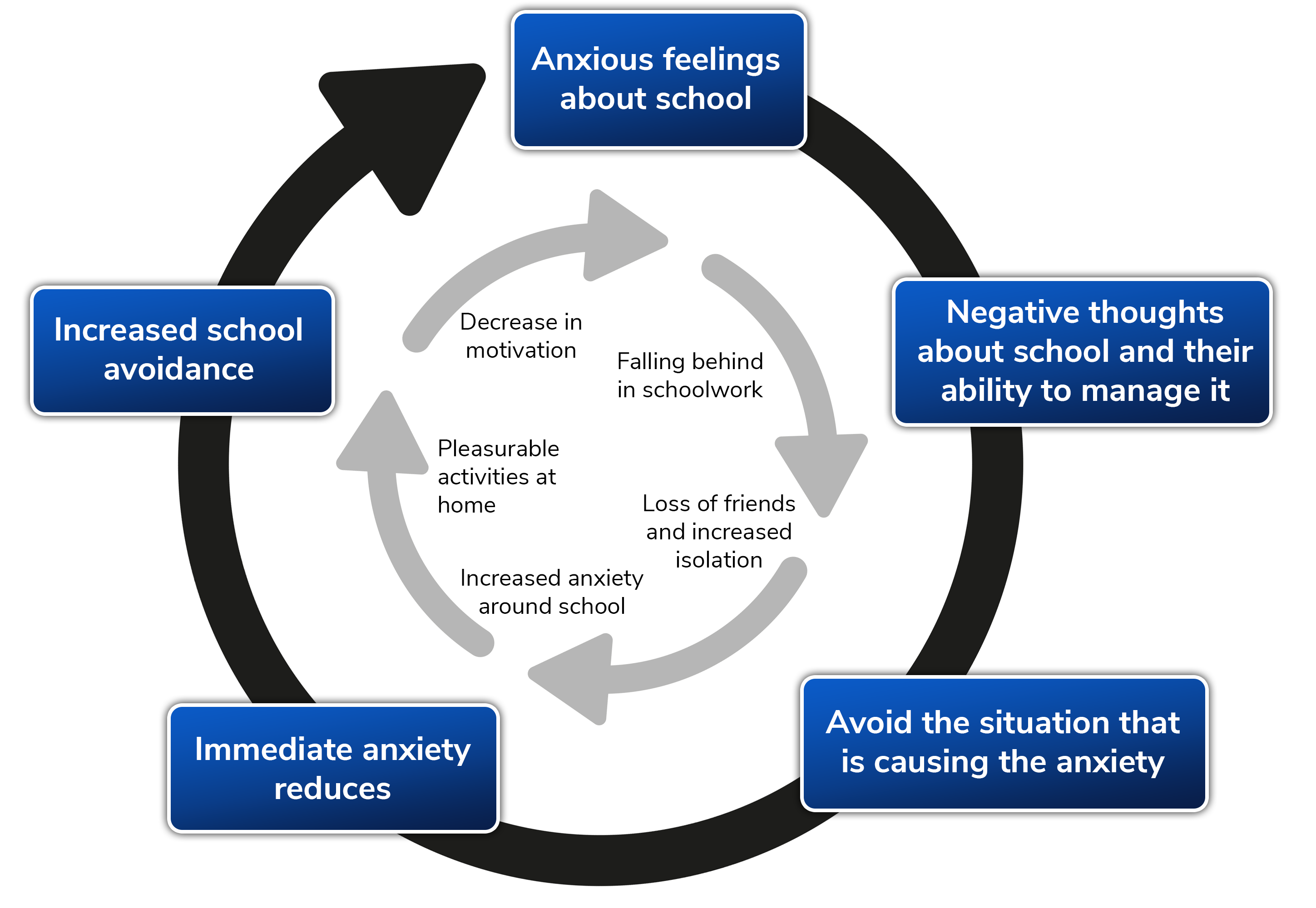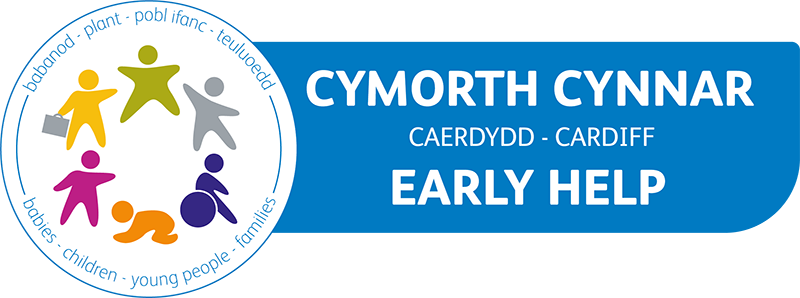Many children and young people worry about school at some point and might say they prefer being at home. This is normal.
Sometimes a child or young person’s worries may become too much, and this can make it difficult for them to go to school. They might show signs of severe anxiety and become upset at the thought of going to school.
Anxiety based school avoidance (ABSA) is a term used when a child or young person finds it difficult to go to school because of anxiety or emotional upset. ABSA can lead to a child or young person being off school for long periods.
There is no single cause for ABSA and it is usually because of a number of factors. ABSA can be caused by:
- Changes in circumstance. For example, transition between school phases (from year 2 to year 3) or schools (primary to secondary).
- Increased educational pressures and demands. For examples, difficulties with learning or exams.
- Difficulties with peers, friendships, or bullying.
- School stresses. For example, noise or overcrowding.
- Separation, loss or bereavement.
- Significant changes in family circumstances and dynamics. For example, moving house or break up.
This is how ABSA behaviours can develop:
Signs of ABSA
Some signs include:
- Stomach aches and headaches.
- Feeling sick when it is time for school.
- Difficulty sleeping or unwilling to leave bed in the morning.
- Tearful or unhappy.
- Does not want to leave you.
- Feeling ‘ill’ after weekends or holidays.
- Trying to avoid school or difficulties leaving the house.
- Withdrawn and not wanting to socialise with friends.
It is important to try and help children and young people overcome these difficulties as soon as possible. The longer they are off school, the more likely it is they will miss out on valuable learning and friendships. This can make it even more difficult to go back to school. By dealing with these worries early, it is easier to change your child’s behaviour.
As a parent it can be really difficult to see your child unhappy. These are some of the actions you can take:
- Make sure you have someone to talk to such as a family member, friend or an organisation.
- Stay calm and listen to your child.
- Tell the school there is a problem and work in partnership with staff.
- Reassure your child that you and the school will work to make school a happier place for them.
- Ask your child if anything is worrying them at home (for example, changes or family life) or in school (for example, workload, environment, or difficulties with friends or peers).
- Stay positive and try not to show your child that you are worried by being hesitant in the mornings.
- Be firm about an immediate return to school.
- Give attention to your child’s ability to overcome when they say they feel unwell (for example, noticing that drinking water has helped or noticing them being able to get on with things).
- Regularly keep in touch with the school.
- Focus on any positive comments made about school by your child.
- Plan an enjoyable activity to do at the end of a school day.
- Reward your child’s ability to attend and any evidence of coping behaviours that they display.
- Avoid reinforcing preferred or stimulating activities when your child is at home (for example, playing computer games, watching TV, or accessing social media).
- Stick to your plan long enough for it to work. It is normal for your child to become more anxious for the first couple of days.

Talking to your child about their worries
It is difficult to talk about the things that make us anxious.
A child or young person who is avoiding school is likely to become anxious when they are asked to talk about returning to school. It is important to acknowledge that it may be difficult for them.
Let them know you are interested in how they feel. If they find it difficult to talk, you could ask them specific questions to help them sort through their thoughts and feelings.
Some questions you could ask are:
- What 3 things are you most worried about?
- What 3 things have you worried about recently?
It is also important to focus on the positives about school:
- What are the 3 best things about school?
Some children and young people may find it hard to tell you face to face. You could ask them to write it down, email, text or even draw how they are feeling.

How the school can help
- Make early contact with you to discuss your child’s reluctance to attend school.
- Listen carefully to you and your child. They should acknowledge the challenges faced by your child and you as their parent or carer.
- Carefully monitor your child’s attendance and look for patterns.
- Help identify some of the factors contributing to the school-based anxiety.
- Maintain close contact with you and your child, even during extended periods of nonattendance.
- An agreed member of staff should be named the link person.
- Plan a careful and gradual reintegration with you and your child. The plan should include what the next steps will be.
- Make adjustments to your child’s timetable, if appropriate.
- Provide a ‘safe’ space for your child and, where possible, access to a key adult.
- Make changes to the learning environment to create a greater sense of safety and security.
- Provide access to emotional support or social confidence support.
- Provide access to learning support, if needed.
- Suggest referrals to other professionals if the problem continues.
- The school should refer to our ABSA guidance for schools.
Need more help?
There are teams or organisations you can contact for more help.
- Cardiff Education Psychology Service – 029 2233 0693
- Cardiff Education Welfare Service – 029 2087 3619
- Cardiff Emotional Health and Wellbeing Team – 029 2233 0690
- YoungMinds
